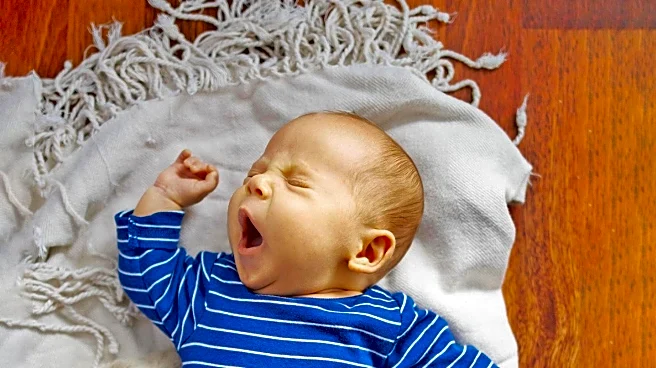What is the story about?
What's Happening?
A recent study has uncovered a surprising physical effect when adults hear a baby cry. Researchers found that hearing an infant in distress activates the autonomic nervous system, causing an increase in facial temperature. The study involved 41 adults with little experience in infant care, who listened to recordings of baby cries while their facial temperatures were monitored. The results showed that cries with higher levels of nonlinear phenomena (NLP), which indicate more distress, led to a greater increase in facial temperature. This response was consistent across both male and female participants.
Why It's Important?
The findings provide insight into the unconscious physiological responses humans have to infant distress signals. Understanding these reactions could have practical applications, such as identifying caregivers who are more attuned to infant needs or helping new parents better interpret their child's cries. The study also highlights the complexity of human responses to emotional stimuli and the potential for using physiological indicators in caregiving and parenting strategies.
Beyond the Headlines
The study's limitations include the use of natural recordings rather than controlled laboratory sounds, which may affect the ability to pinpoint specific elements triggering responses. Additionally, the participants' lack of experience with infants suggests that results might differ for parents or professional caregivers. Despite these limitations, the research opens avenues for further exploration into how humans interact with and respond to infant distress signals, potentially influencing caregiving practices and early childhood development strategies.















